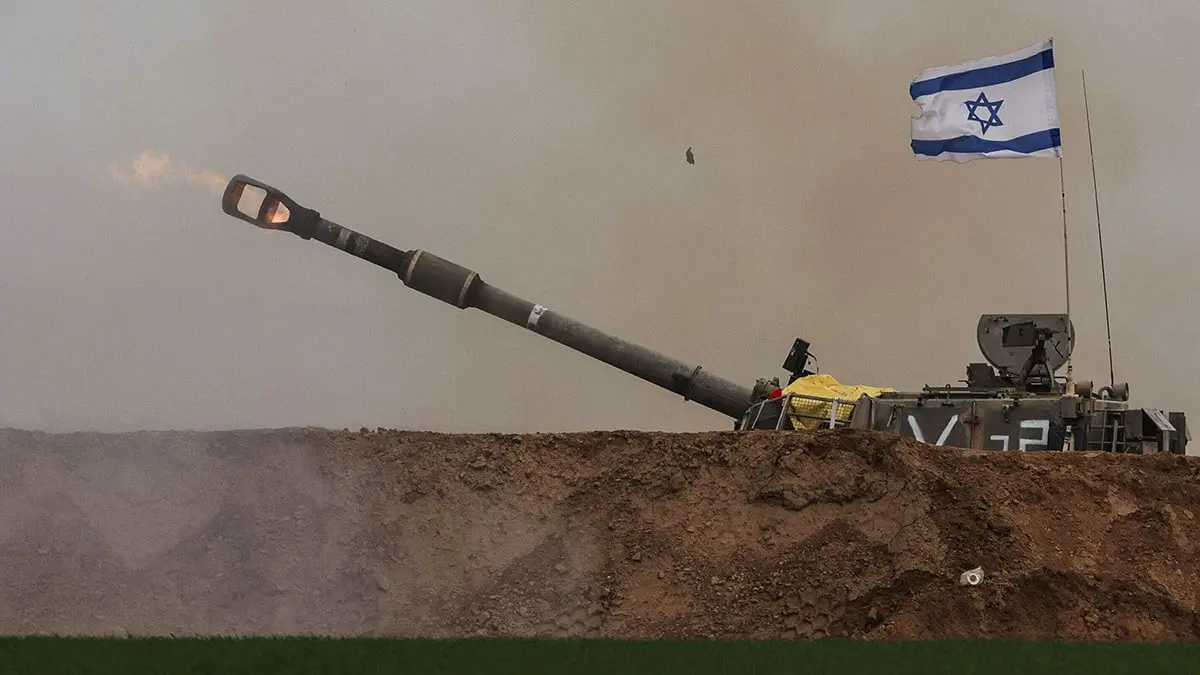Heavy fighting in Gaza despite US warning of "chaos" risk

Fighting between the Israeli army and the Palestinian Hamas movement continued in the Gaza Strip on Monday, mainly in Rafah, despite US warnings against an offensive in the overcrowded city that could unleash "chaos".
AFP correspondents and several witnesses report violent clashes between Israeli soldiers and Hamas fighters in different sectors of Gaza.
"Our war of independence is not over yet. It continues even today (...) We are determined to win this struggle," Israeli Prime Minister Benjamin Netanyahu said during a Remembrance Day celebration, which commemorates those killed in the conflict each year.
Nearly a week after the start of the Israeli army's operation in Rafah, an Egyptian border town in the southern Gaza Strip where 1.4 million Palestinians are crowded, US Secretary of State Antony Blinken said an offensive in the overcrowded city would not achieve the stated goal of eliminating Hamas.
AFP correspondents reported helicopter gunfire and shelling in eastern Rafah. Netanyahu is threatening to launch a major ground offensive to attack the last Hamas battalions he says are holed up there.
In recent days there has also been fighting between Israeli forces and Palestinian militiamen in the northern Gaza Strip, where, according to an Israeli army spokesman, Hamas is "trying to reconstitute its military capabilities".
There were also clashes in Zeitun and Jabalia, respectively in the central and northern Gaza Strip, according to AFP correspondents and witnesses.
Last week, Israeli forces ordered the population to evacuate east of Rafah and 300,000 Palestinians did so, according to the army.
But according to Blinken, a major operation in Rafah would risk creating "chaos", "anarchy" and "enormous damage" to the civilian population "without solving the Hamas problem", he said in an interview with NBC.
"We have seen Hamas return to areas that Israel liberated in the north, including Khan Younis," a ruined town near Rafah, he said.

"An inferno"
On foot, in vehicles or on tricycles, thousands of Palestinians continue to flee Rafah in an attempt to find refuge elsewhere in Gaza.
"We have lived through hell for three days and the worst nights since the start of the war," Mohamed Hamad, 24, who fled shelling-hit eastern Rafah following army evacuation orders, told AFP.
"Talk of safe zones is false and misleading. No place is safe in Gaza" for its approximately 2.4 million inhabitants, the head of the UN agency for Palestinian refugees (Unrwa), Philippe Lazzarini, wrote on the social networking site.
Hamas accused Israel on Sunday of wanting to "derail" talks on a truce and the release of hostages held in Gaza, so far to no avail, with its offensive on Rafah.
The war was sparked by the 7 October attack by Hamas militiamen infiltrating from Gaza into southern Israel, which left more than 1,170 people dead, mostly civilians, according to AFP figures based on official Israeli data.
More than 250 people were abducted during the attack and 128 remain captive in Gaza, of whom 36 are believed to have been killed, according to the army.
In response, the army launched heavy shelling followed by a ground offensive on October 27, which devastated Gaza, displaced most of the population and caused a humanitarian disaster, with an imminent threat of famine, according to the UN.
Hamas warned on Monday that the health system in the Palestinian territory is "hours away from collapse" because of a lack of fuel to run hospital generators, ambulances and personnel transport.
According to the Hamas health ministry, 35,034 people have died since the war broke out, mostly civilians.
The Israeli army has reported the death of 272 of its soldiers since the start of the conflict.










